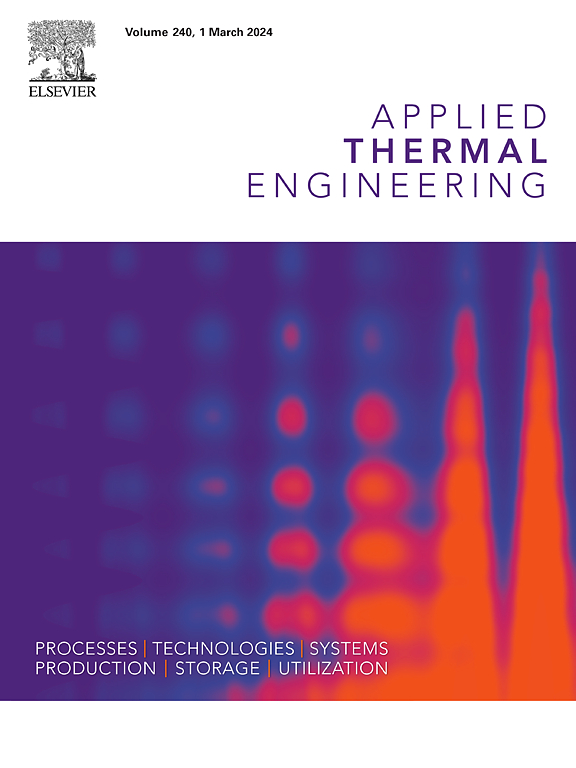Predictive fuel cell thermal management for fuel cell electric tractors
IF 6.1
2区 工程技术
Q2 ENERGY & FUELS
引用次数: 0
Abstract
This study addresses the significant challenges associated with adopting fuel cell powertrains for agricultural machinery, particularly concerning efficiency and durability due to the demanding operational environment. A critical factor is the fuel cell’s operational temperature, which can lead to degradation, higher auxiliary consumption, and larger radiator volumes. To mitigate these problems, the present study introduces a predictive control approach for thermal management. Specifically, the notable advantages of the non-linear model predictive controller over classical control approaches can be attributed to the combination of a control-oriented model and predictions into a real-time optimization problem. This approach stands as an innovative addition aimed at compensating the inertia of the cooling system while deploying predictions to improve the control accuracy and concurrently optimize the utilization of actuators. This work is organized into two principal contributions: the extensive modeling of a fuel cell system and its validation, and the comprehensive investigation of a model predictive control strategy. The results demonstrate that a predictive thermal management strategy can significantly diminish auxiliary consumption by up to 30% compared to classical control strategies across various ambient temperatures without compromising temperature reference control. In particular, a comparison with a classical control strategy reveals the effective deployment of multiple actuators and prediction under the prescribed constraints in the proposed control concept. Additionally, the study quantifies the impact of ambient temperature on auxiliary consumption and identifies operational scenarios where model predictive control performs optimally. As part of the unique contribution of this work, the cost function weights, length, and accuracy of the prediction horizon are also analyzed, with findings showing that a balance between performance and actuator consumption can be achieved.

求助全文
约1分钟内获得全文
求助全文
来源期刊

Applied Thermal Engineering
工程技术-工程:机械
CiteScore
11.30
自引率
15.60%
发文量
1474
审稿时长
57 days
期刊介绍:
Applied Thermal Engineering disseminates novel research related to the design, development and demonstration of components, devices, equipment, technologies and systems involving thermal processes for the production, storage, utilization and conservation of energy, with a focus on engineering application.
The journal publishes high-quality and high-impact Original Research Articles, Review Articles, Short Communications and Letters to the Editor on cutting-edge innovations in research, and recent advances or issues of interest to the thermal engineering community.
 求助内容:
求助内容: 应助结果提醒方式:
应助结果提醒方式:


